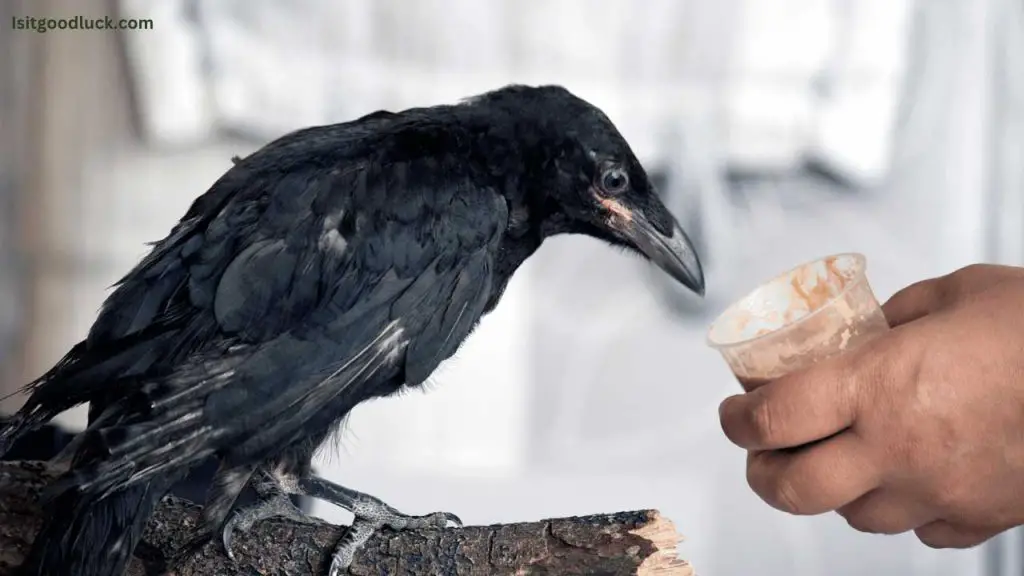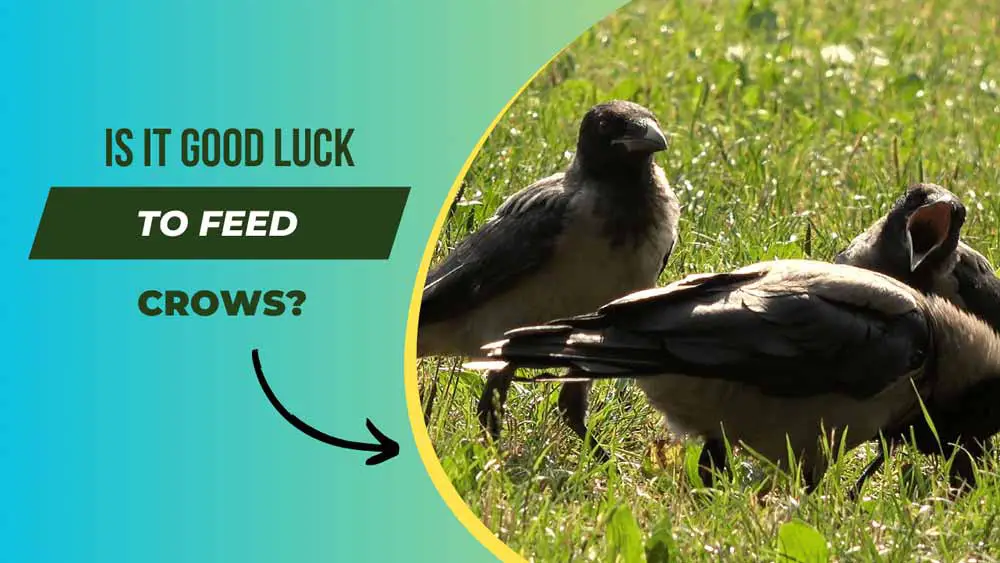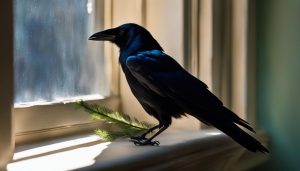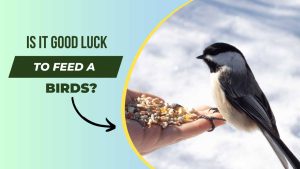From ancient legends and folklore to modern superstitions, crows hold a distinctive place in our collective imagination.
Intelligent, adaptable, and often enigmatic, these birds have found themselves associated with various interpretations, good and bad, across different cultures and times.
One specific practice that has sparked much debate is feeding crows. Is it good luck to feed crows?
Is it a way to connect with the spiritual realm? Or is it a simple act of kindness to another species? Let’s explore these questions in-depth.
Contents
Cultural Interpretations and Superstitions about Crows:
Crows are as much a part of human culture as they are of the natural world. Their significance, however, varies significantly from culture to culture.
Crows as Harbingers of Misfortune
In many cultures, crows are ominous creatures associated with death and misfortune. This perception likely stems from their scavenging habits, leading to their presence near dead animals or, in certain cases, battlefields. For instance, seeing a crow on one’s doorstep is considered an ill omen in parts of England.
Crows as Messengers of Good Fortune
Contrary to the ominous associations, in some cultures, crows are revered as symbols of luck and prosperity.
In China, crows are viewed as harbingers of good fortune and often feature prominently in art and literature. They are even given as gifts in certain situations, symbolizing goodwill and positive expectations.
Also read: Is it good luck to help an injured bird?
The Ritualistic Significance of Feeding Crows:

Feeding crows transcend superstition in certain cultures, acquiring ritualistic and spiritual dimensions.
Honoring the Ancestors: A Tradition in India
In India, feeding crows holds special significance during the Shradh festival, a period dedicated to paying homage to one’s ancestors.
Feeding crows is considered an act of virtue, seen as providing sustenance to the departed souls, and is thus believed to bring good luck and blessings.
Respecting Nature: The Native American Perspective
Native American cultures often view crows as sacred entities. Feeding crows is seen as an act of respect towards these intelligent creatures and a form of connection with the larger ecosystem.
This respect acknowledges the crow’s place in the natural order and its significant role in maintaining ecological balance.
The Ecological Impact and Benefits of Feeding Crows:
Beyond cultural and spiritual connotations, feeding crows can have tangible impacts on the crow population and the human-crow relationship.
Ensuring Survival and Health of Crows
Feeding crows contributes to their overall health and survival. As intelligent creatures with a vital role in the ecosystem, ensuring their well-being ultimately contributes to maintaining a balanced environment.
Building Trust between Humans and Crows
Regular feeding can foster trust between humans and crows, lessening their fear of humans. This can pave the way for a harmonious relationship, benefiting both parties.
The Joy of Interaction
On a personal level, feeding crows can provide an engaging, rewarding experience. As curious creatures, crows often approach humans feeding them, allowing one to observe their behavior up close and uniquely interact with them.
Guidelines for Feeding Crows
If you’re considering feeding crows, keep these guidelines in mind:
- Provide a healthy diet: Feed crows foods they enjoy and are suitable for them, like peanuts, bread, fruits, seeds, and insects. Avoid meat as it can make them sick.
- Respect their space: Even while feeding, remember to give crows their room to prevent them from feeling threatened.
- Create a safe feeding zone: If you’re providing crows in your yard, ensure it’s a safe area where they won’t be disturbed by people or pets.
Conclusion: Is it good luck to feed crows?
Whether feeding crows brings good luck is a matter of personal belief. It could be tied to cultural superstitions or spiritual rituals or be an act of kindness towards a fellow creature.
Regardless of the motivation, it is clear that feeding crows can have several positive outcomes, from enhancing our understanding of these creatures to fostering a more harmonious relationship with them.
But remember, this act should be done responsibly, with the well-being of the crows and respect for their natural behavior paramount.
In doing so, who knows? You might even befriend a crow or two. After all, these intelligent birds are known for their ability to remember those who are kind to them!
Also read other articles regarding birds good luck
FAQs
Q: What kind of food can I feed crows?
A: Crows are omnivorous and can eat a wide variety of foods. They particularly enjoy peanuts, fruits, seeds, and bread. They also eat insects, which provide them with necessary proteins. Avoid feeding crows meat or unhealthy foods, such as chips or candy, as these can harm their health.
Q: Is it legal to feed crows?
A: The legality of feeding crows varies by region. In some places, feeding wildlife, including birds, may be against local regulations. It’s best to check local laws or consult with local wildlife experts before feeding crows.
Q: Will feeding crows make them dependent on humans?
A: Crows are highly adaptable birds and excellent at finding food in various environments. While regular feeding can make crows less fearful of humans, it is unlikely to make them entirely dependent unless it is their only food source.
Q: Can feeding crows attract more crows to my area?
A: Yes, it is possible. Crows are social birds and communicate with each other about food sources. If you regularly feed crows, it could attract more of them to your area.
Q: I have heard that crows remember human faces. If I feed them, will they remember me?
A: Crows are known for their exceptional intelligence, including their ability to recognize individual human faces. If you regularly feed crows, they will likely associate your look with the food and may even come to recognize and remember you.





